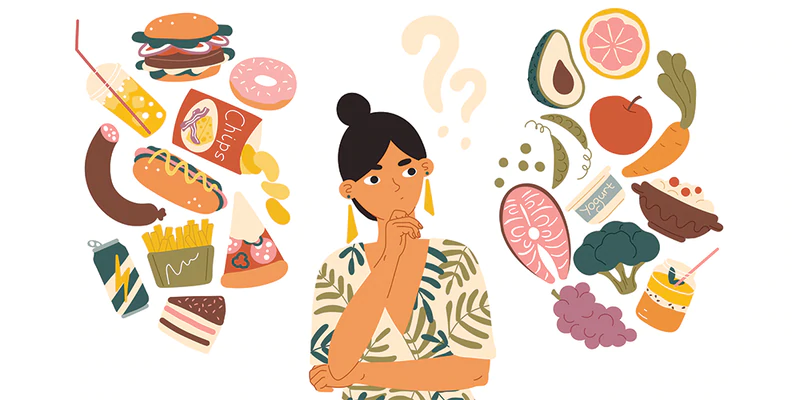If you have dieted your entire life and bounced back and forth between the latest and greatest fad diet that promised you would lose weight, you may have learned firsthand that DIETS DO NOT WORK! You may be saying “Duh Ann, thank you for this earth shattering information.” However, I encourage you to practice re-routing your thought process and think about intuitive eating.
Is it hard to re-train your brain? Of course! Keep in mind that different methods work for different people to achieve and maintain a healthy lifestyle, but I ask you to keep an open mind and consider some of these suggestions to break through the barrier:
What is intuitive eating? Intuitive eating is an approach to help you become more in tune with your body’s signals. As adults, we tend to ignore or forget about our body’s signals of hunger and fullness. Emotions and life’s stressors kick in and we eat if we are happy, sad, stressed, mad, bored – whether we are hungry or not. We can sometimes eat well beyond our fullness and end up feeling uncomfortable or sick.
Diet culture, social media, and our upbringings have caused us to set rules and restrictions on food. For example,
- Labeling foods as “good” or bad”. If we eat a “bad” food, we feel guilty or ashamed, which will lead to further restricting.
- Finish everything on your plate despite feeling full before that.
- Unrealistic advertisements on weight loss. For example, “lose 30 pounds in 30 days!”
- Only being allowed to eat specific foods in order to lose weight.
Intuitive eating is the opposite of this, and instead is re-learning to eat outside of the diet mentality. It’s (1) putting the focus on your internal cues (a.k.a. your intuition) like hunger, fullness and satisfaction, (2) moving away from external cues like food rules and restrictions, and (3) working towards not feeling guilty.
What are some principles of intuitive eating?
- Reject the diet mentality: Dieting isn’t sustainable. Fad diets are all about marketing. Unfollow social media accounts that push dieting behaviors, especially those that make you feel bad about yourself.
- Honor your hunger: Hunger is a normal feeling to experience – our bodies NEED food. If you are hungry, eat. Focus on eating slowly and savoring the food. Make healthy food choices that make your body and mind fee great. If you try to override feelings of hunger, this can lead to overeating and binges.
- Make peace with food: Stop categorizing foods as “good”, “bad”, or “forbidden” – no single food has the power to make you completely healthy or unhealthy. Deprivation builds into uncontrollable cravings and overeating. When you finally “give in” to that food, you’re likely to overeat, which can trigger guilt and start the cycle all over again.
- Relearn your satisfaction/fullness signal: This goes hand in hand with #2. If you are full, stop eating. If you have forgotten what true fullness feels like, make sure to “listen” more closely as you eat.
- Avoid eating for comfort: There are SO many reasons why we eat. It can be due to anxiety, loneliness, boredom, anger, or stress. It’s okay to have these feelings, but it’s important to get to the root of these problems and find ways to nurture yourself and resolve issues without turning to food
- Respect your body: Do your best to feel good about the body you are currently in while you work on making changes to your lifestyle. Set realistic goals as opposed to striving for something that’s completely unattainable. Accept that making changes and being consistent takes time.
- Find exercise that you enjoy: Instead of focusing on the exercise you think you “should” be doing, shift your focus to what types of movement feels good to you. Are you exercising as a form of punishment for what you ate? Exercise should be something that makes you feel energized, improves your mood, strengthens you, and improves your sleep.
Allow yourself some time to practice these tips, even if it’s just one for now. Change doesn’t happen overnight!




About the author